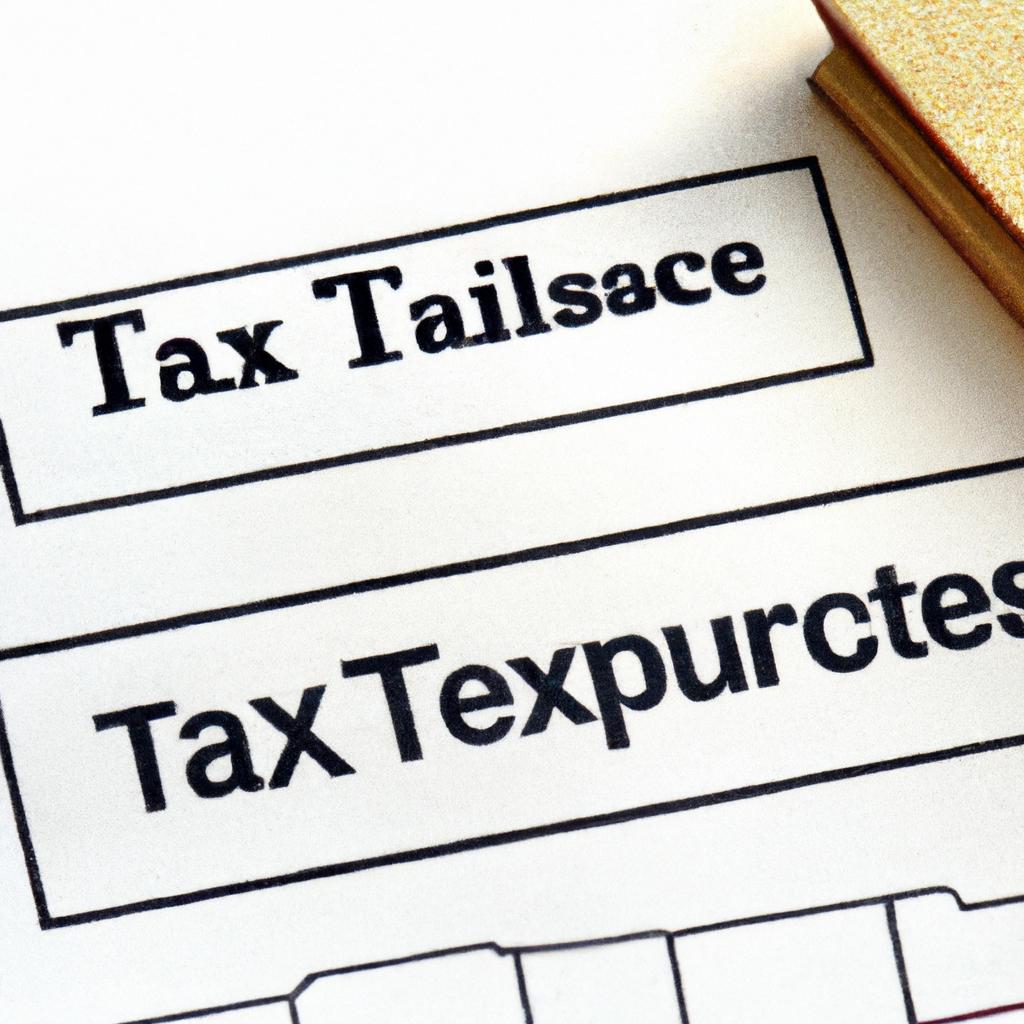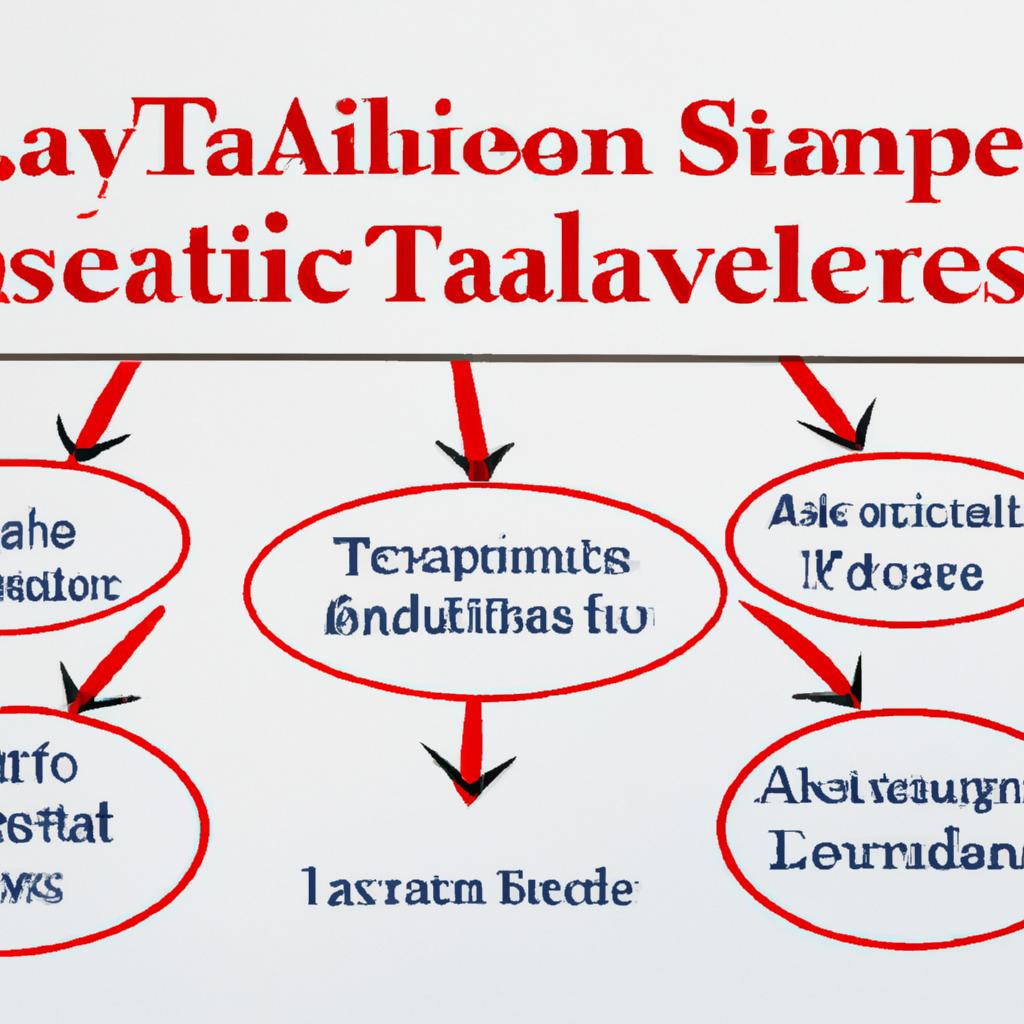Navigating the intricate world of estate and trust taxes can be a daunting task for individuals looking to safeguard their assets and ensure their loved ones’ financial security. At Morgan Legal Group, based in the bustling metropolis of New York City, our experienced team of legal experts specializes in estate planning, probate, elder law, wills, and trusts. In this article, we will unravel the complexities of estate and trust taxes, shedding light on the differences between the two and providing valuable insights to help you make informed decisions regarding your financial future.
Key Differences Between Estate Taxes and Trust Taxes
When it comes to estate planning, understanding the differences between estate taxes and trust taxes is crucial. While both types of taxes are related to the transfer of assets upon death, there are key distinctions that individuals need to be aware of to ensure they are making informed decisions.
<p><strong>Estate Taxes:</strong></p>
<ul>
<li>Levied on the total value of a deceased individual's assets</li>
<li>Paid by the estate before beneficiaries receive their inheritance</li>
<li>Federal estate tax exemption threshold is currently $11.7 million for individuals</li>
</ul>
<p><strong>Trust Taxes:</strong></p>
<ul>
<li>Income taxes paid on income generated by assets held in a trust</li>
<li>May be subject to capital gains taxes, depending on the type of trust</li>
<li>Can provide tax benefits, such as minimizing estate taxes through strategic planning</li>
</ul>

Understanding the Tax Implications of Estate Distribution Through Wills
When distributing an estate through wills, it is crucial to understand the tax implications that may arise. One important consideration is the difference in taxes between estates and trusts. Estates are subject to estate taxes based on the total value of the assets, while trusts may be subject to income taxes on any earnings or gains generated within the trust.
Furthermore, estates are required to file an estate tax return if the value exceeds a certain threshold, which can vary depending on the year and jurisdiction. Trusts, on the other hand, may be required to file income tax returns each year if there is income generated within the trust. It is important to consult with a knowledgeable estate planning attorney to ensure that you are aware of and understand the tax implications of distributing your estate through wills.

Maximizing Tax Efficiency Through the Use of Trusts in Estate Planning
When it comes to estate planning, utilizing trusts can be a powerful tool for maximizing tax efficiency. By establishing a trust, individuals can potentially reduce their estate tax liability, protect assets, and ensure a smooth transfer of wealth to beneficiaries. Trusts offer a level of flexibility and control that can help individuals achieve their long-term financial goals.
One of the key benefits of using trusts in estate planning is the ability to minimize estate taxes. Through strategic trust planning, individuals can take advantage of tax-saving strategies such as the generation-skipping transfer tax exemption and the marital deduction. By carefully structuring trusts, individuals can also protect assets from creditors and ensure that their wealth is distributed according to their wishes. Overall, trusts can play a crucial role in creating a tax-efficient estate plan that maximizes the benefits for both individuals and their beneficiaries.

Strategic Recommendations for Minimizing Tax Liability in Estate and Trust Administration
When it comes to minimizing tax liability in estate and trust administration, there are several strategic recommendations that can help individuals effectively manage their assets and protect their wealth. One key recommendation is to establish a comprehensive estate plan that clearly outlines the distribution of assets and minimizes tax obligations. This can involve creating trusts, gifting assets during one’s lifetime, and utilizing tax-efficient strategies to transfer wealth to beneficiaries.
Additionally, leveraging tax deductions and credits can help reduce tax liability for estates and trusts. By staying informed about current tax laws and regulations, individuals can take advantage of opportunities to lower their tax burden. It is also important to work with experienced professionals, such as estate planning attorneys and financial advisors, who can provide guidance on tax-efficient strategies and help navigate the complex landscape of estate and trust taxation.
Q&A
Q: What is the difference between estate taxes and trust taxes?
A: Estate taxes are levied on the total value of an individual’s assets after they pass away, whereas trust taxes are imposed on the income generated by assets held in a trust.
Q: How are estate taxes calculated?
A: Estate taxes are calculated based on the total value of the deceased individual’s assets at the time of their death, minus any debts and applicable exemptions.
Q: Are there any exemptions or deductions available for estate taxes?
A: Yes, there are various exemptions and deductions available for estate taxes, such as the marital deduction, charitable deductions, and the lifetime gift tax exemption.
Q: How are trust taxes calculated?
A: Trust taxes are typically calculated based on the income generated by the assets held in the trust, using the trust’s income tax rates.
Q: Are there any differences in the tax rates for estate taxes and trust taxes?
A: Yes, estate tax rates can vary depending on the total value of the deceased individual’s assets, while trust tax rates are based on the trust’s income brackets.
Q: What are some ways to minimize estate and trust taxes?
A: Some strategies to minimize estate and trust taxes include gifting assets during one’s lifetime, setting up trusts with tax-efficient structures, and utilizing exemptions and deductions effectively.
The Conclusion
In conclusion, when it comes to estate vs trust taxes, it is important to carefully consider your individual circumstances and consult with a professional to determine the best course of action. By understanding the differences and potential implications of each option, you can ensure that your assets are handled in the most tax-efficient manner possible. Whether you choose to establish an estate or a trust, proper planning can help protect your wealth and ensure that your wishes are carried out smoothly. Remember, the key to successful wealth management lies in careful consideration and strategic decision-making.
 As one navigates the complex world of estate planning, the terms “estate” and “trust” are often used interchangeably. However, when it comes to taxes, there are significant differences between the two. Understanding these nuances can help individuals and families better plan for potential tax liabilities in the future. In this article, we will explore the differences between estate taxes and trust taxes, their potential impact on an estate, and how proper planning can mitigate these taxes.
As one navigates the complex world of estate planning, the terms “estate” and “trust” are often used interchangeably. However, when it comes to taxes, there are significant differences between the two. Understanding these nuances can help individuals and families better plan for potential tax liabilities in the future. In this article, we will explore the differences between estate taxes and trust taxes, their potential impact on an estate, and how proper planning can mitigate these taxes.
Estate Taxes
Estate taxes, also known as “death taxes,” are a type of tax levied on the transfer of a deceased individual’s assets to their heirs. It is a federal tax and can also be imposed at the state level in some cases. The federal estate tax was first enacted in the United States in 1916 and has undergone several changes since then, with the most recent being in the Tax Cuts and Jobs Act of 2017.
In 2021, the federal estate tax exemption is $11.7 million per individual, meaning that estates worth less than this amount are not subject to federal estate taxes. This exemption is transferable between spouses, allowing married couples to potentially exempt up to $23.4 million from taxation. Estates exceeding the exemption amount are taxed at a rate of 40%.
However, it is essential to note that some states have their own estate tax laws with different exemption amounts and rates. For example, 12 states and the District of Columbia have an estate tax, with exemptions ranging from $1 million to $11.7 million. Therefore, individuals living in these states may be subject to both federal and state estate taxes.
Trust Taxes
A trust is a legal entity created to hold assets for the benefit of one or more individuals. Unlike estates, trusts do not arise upon death but are established during an individual’s lifetime. There are various types of trusts, each with its own purpose and benefits. However, for tax purposes, trusts are classified into two categories: revocable trusts and irrevocable trusts.
Revocable trusts, also known as living trusts, can be modified or revoked by the creator during their lifetime. As a result, they are considered part of the creator’s estate for tax purposes. Therefore, revocable trusts are not subject to separate trust taxes, as their assets are included in the estate and subject to estate taxes.
On the other hand, irrevocable trusts cannot be modified or revoked once established, and their assets are considered separate from the creator’s estate. These types of trusts may be subject to their own set of taxes, including income taxes, capital gains taxes, and potentially, gift and estate taxes. The type of tax that applies to an irrevocable trust depends on the specific terms and structure of the trust.
Potential Impact on an Estate
The tax implications of estates and trusts can significantly impact the value of an individual’s assets that are passed down to their beneficiaries. In the case of estate taxes, any amount exceeding the exemption limit is subject to a 40% tax rate. This can significantly decrease the amount of assets available for inheritance.
For trusts, the type and amount of taxes incurred can vary greatly depending on the type of trust and the assets held within it. For example, if an irrevocable trust generates income, it is subject to income taxes. If assets in the trust appreciate in value, they may be subject to capital gains taxes upon sale or distribution. Additionally, if a trust is subject to both federal and state laws, the potential tax liability could be even greater.
Mitigating Estate and Trust Taxes
Proper estate planning can help mitigate or even eliminate taxes on both estates and trusts. Some common strategies include:
1. Gifting assets: Individuals can gift assets during their lifetime to reduce the value of their estate and potentially avoid or decrease estate taxes. However, there are limits to how much can be gifted without incurring gift taxes.
2. Irrevocable life insurance trust: By placing life insurance policies in an irrevocable trust, the death benefit may be excluded from the estate, thereby reducing the taxable estate.
3. Charitable trusts: These types of trusts allow individuals to donate assets to charity while still receiving income and tax benefits during their lifetime.
4. Income tax planning: For trusts subject to income taxes, proper tax planning, such as minimizing taxable income and utilizing tax deductions, can help reduce tax liabilities.
In summary, understanding the differences between estate and trust taxes is crucial for proper estate planning. While estate taxes are imposed upon the transfer of an estate after death, trust taxes can apply to certain types of trusts during an individual’s lifetime. Both can significantly impact the value of assets being passed down to heirs. However, with proper planning and the help of a trusted financial or legal advisor, individuals can mitigate these taxes and ensure their assets are passed down to their beneficiaries efficiently.

